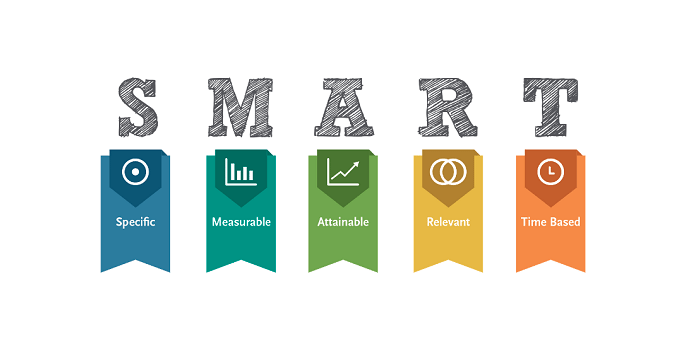
How To Set SMART Goals
Have you ever wondered why you have had a difficult time achieving some of the goals you set for yourself? Maybe you have wanted to live a healthier lifestyle, finish that degree, or learn all of the features on your digital camera. But you keep putting it off and telling yourself, “Someday…” Well, there’s a specific process you can follow that can help you set and achieve your goals. It’s called the SMART goals setting process, and it’s used in schools and businesses because it’s both simple and effective.
SMART is an acronym for each component of the goal that you create for yourself.
S = Specific. Be specific about your goal. Who is involved? What do I want to accomplish? Where do I want to accomplish it and when (time frame)? Which requirements and constraints exist? Why do I want to accomplish this goal (purpose/benefits)?
M = Measurable. Establish concrete criteria for measuring progress toward the attainment of mini-goals. Set target dates along the way. How will you know when you have accomplished your goal?
A = Attainable. Develop attitudes, abilities, skills, and financial capacity to reach goals. Look for previously overlooked opportunities to achieve your goal.
R = Realistic. Your goal should have the right amount of challenge. Have you accomplished something similar in the past? You must believe that you can truly accomplish it.
T = Timely. Anchor your goal to a specific time frame (it helps to create focus and sense of urgency).
When creating your SMART goals, you may also want to keep in mind who might support your goals and who might sabotage your goals. Sometimes the people who are close to us can inadvertently sabotage us, such as the spouse who brings home dessert while the other one is trying to diet. And, you may find support in expected places, like a colleague who is also balancing work and going to school at night.
Also, remember that it takes about three months for your new habits to become part of your lifestyle. If you are having trouble in the beginning making these habits part of your lifestyle, tell yourself to stick it out. Many people fizzle out around the six-week mark, so if you find yourself losing motivation, set mini goals with small rewards to keep yourself on track.
Lastly, plan for stumbling blocks or setbacks. Just because you get off track or lose focus doesn’t mean you give up. Plan a process or means of getting back on track. What is your contingency plan? Having a rigid “all or nothing” plan is a recipe for failure. Planning ahead for these stumbling blocks is the key to success. Part of the planning involves thinking about what might get you off track and planning ahead for these events. Doing so will only increase your ability to achieve your goals. Happy Goal-Setting!
[Via Medium]





